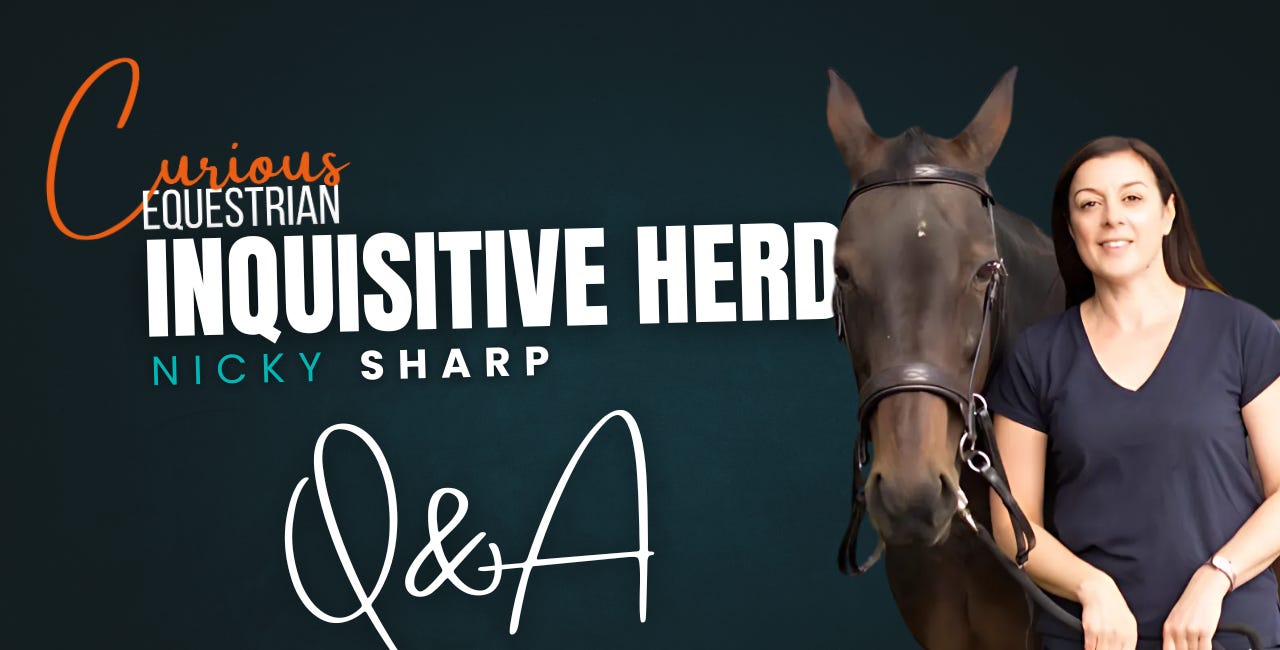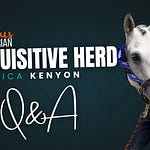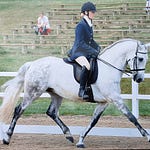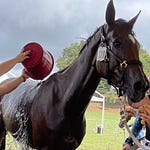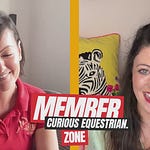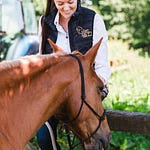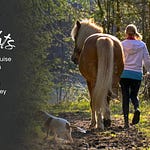This week's conversation with Nicky Sharp reveals how a traumatized rescue mare named Jessie didn't just change her life, she completely rewrote the story of who Nicky thought she was.
This Week's Deep Dive 🎧
Guest: Nicky Sharp, Life Coach & Equestrian
Former corporate professional turned life coach
Owner of rescue mare Jessie for 6 years
Specialist in trauma recovery for both horses and humans
Advocate for relationship-based horsemanship
Key Topics:
Recognizing when a horse is shut down vs. "solid"
Building connection before skill in horsemanship
The parallel healing journey of horse and human
Practical steps for nervous system regulation
Why "doing nothing" with your horse is actually everything
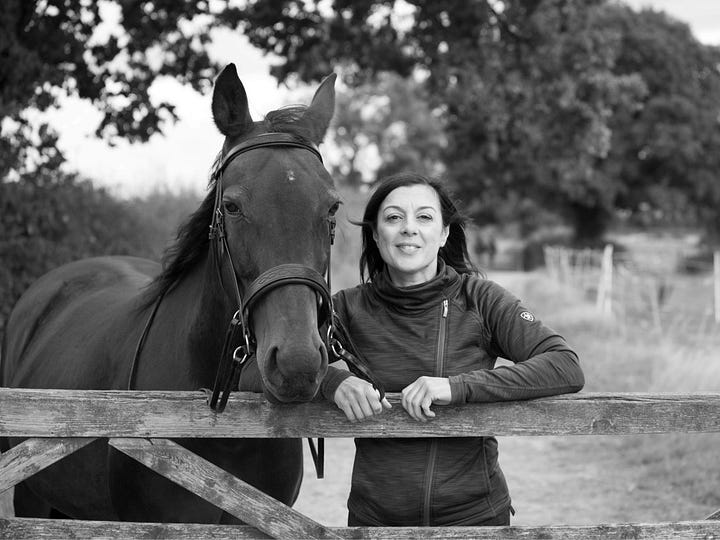
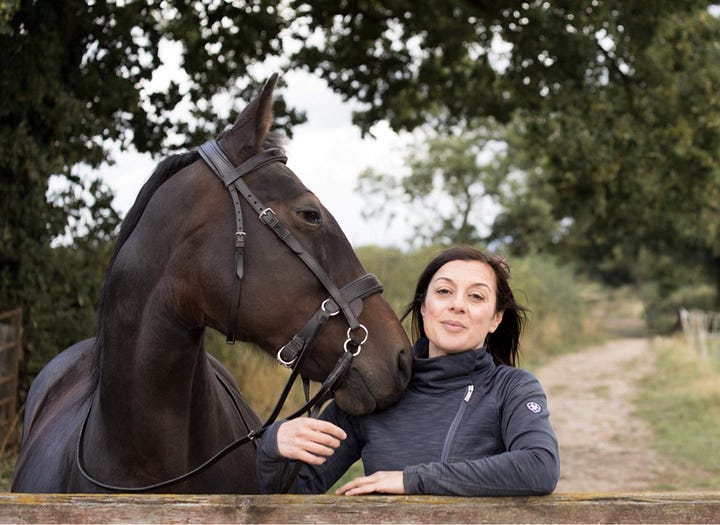
The Big Takeaway
You get the horse you need, not necessarily the one you wanted. Nicky's journey with Jessie proves that our most challenging partnerships often become our most transformative ones. When both horse and human are struggling with trauma and anxiety, the path forward isn't through dominance or quick fixes, it's through the slow, patient work of building trust and healing together. The real breakthrough came when Nicky stopped trying to train Jessie and started learning to simply be with her.
Three Things That Stood Out
1. "It took 90 minutes for her to lick and chew" When Nicky first stood with Jessie in the arena, it took an hour and a half for the mare to show any signs of relaxation. This powerful moment illustrates just how deeply trauma can affect a horse's ability to regulate their nervous system. It's a reminder that healing takes time, and our job is to create the space for it to happen.
2. The phone-in-the-bedroom revelation Nicky's simple change of buying a £10 alarm clock and keeping her phone downstairs transformed her sleep quality and daily energy levels. This small shift had a ripple effect on every aspect of her life, including her relationship with Jessie. Sometimes the most profound changes come from the simplest adjustments to our daily routines.
3. "She tells me in a nice way now—she doesn't shout" After years of patient relationship building, Jessie now communicates her boundaries clearly but gently. This transformation from defensive aggression to quiet confidence shows what's possible when we give horses a voice and honor their opinions in the partnership.
Deep Dive Analysis
The Myth of the "Solid" Horse
Nicky's story challenges our understanding of what makes a horse "safe" or "solid." Jessie appeared calm and reliable during the trial ride, but this wasn't confidence; it was a trauma response. She was so shut down that she couldn't express her true feelings. Many horses labeled as "quiet" or "bombproof" are actually suppressing their natural responses out of fear. Learning to recognize the difference between genuine confidence and shutdown behavior is crucial for any horse owner.
The Foundation Crisis in Modern Horsemanship
Traditional riding instruction often focuses on skill development before relationship building. Nicky tried to apply straightness training and groundwork techniques with Jessie, but these approaches failed because there was no foundation of trust. As she learned from mentors like Warwick Schiller and Elsa Sinclair, you can't build skill on top of fear. The relationship must come first, everything else is just technique.
The Nervous System Connection
Perhaps the most profound insight from Nicky's journey is understanding how our own nervous system state affects our horses. When she was dealing with work stress, anxiety, and personal upheaval, Jessie reflected that chaos back to her. Only when Nicky began regulating her own nervous system through meditation, better sleep, and lifestyle changes did their relationship begin to transform. This isn't just about being "calm" around horses, it's about nervous system health.
Questions for Reflection
What story are you telling yourself about your horse? Nicky initially saw Jessie as "dangerous," but the reality was that she was scared. Are you attributing malicious intent to behavior that might actually be fear-based?
How is your own nervous system affecting your partnership? Consider your sleep, stress levels, phone usage, and overall well-being. What one small change could you make that might have a ripple effect on your relationship with your horse?
When did you last do "nothing" with your horse? Not training, not riding, not even groundwork, just being present together. What would it look like to schedule that kind of connection time into your routine?
What's Coming Up
Member Q&A: This Friday's exclusive content features Nicky answering your questions about starting a mindfulness practice, dealing with yard politics, and practical tips for nervous system regulation.
Join the Conversation
What resonated most with you from Nicky's story? Have you experienced that moment when you realized your horse was trying to tell you something important? Share your thoughts in the comments below—I read every single one and often feature reader insights in future episodes.
Q&A with Nicky Sharp: Building Confidence with Horses
Nicky shares practical advice for building self-esteem and resilience both at home and with your horse. Here are the key insights from three listener questions.




